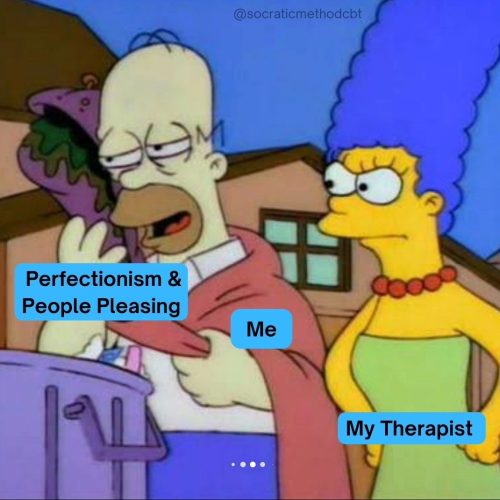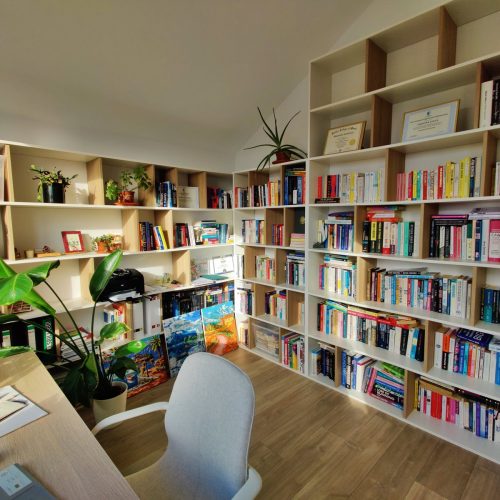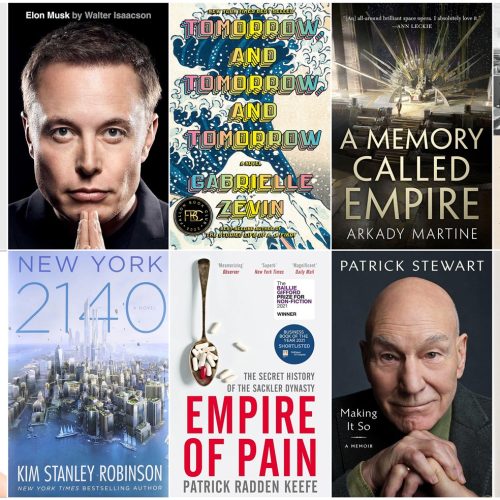Morning!
A few days ago, while updating GoodReads (which I only do once every two months or so, as a way to keep track of all the books I read), I realized that I’m way ahead of my reading schedule for the year. I set as a challenge to read 50 books, and already got to finish 44 (while pushing through 7 or 8 other books at a time).
This is the same pattern from last year, when I set 30 books as a target, and ended up reading 50.
At the moment when I set the number of books for this challenge, I remember Bobby asking me if I’m not playing it too safe. I already read 50 books in 2017, I know I can read more, so why not set a more difficult target for 2018? I didn’t know what to tell him, but the question remained in the back of my mind, and now I might have an answer.
Past a certain point, the effort of reading too many books wouldn’t make a big difference in my life. The marginal gains will be limited. I risk ignoring other priorities I have and get kicked by life in my face, just to keep up with a stupid number I imposed on myself.
I prefer to keep the numbers of books I read at a no-pressure level and instead focus on applying and internalizing those lessons. Books are great (obviously since I have a project with curated books by/for entrepreneurs ![]() ) but they can’t replace hands-on experience.
) but they can’t replace hands-on experience.
Well, and I already read a lot, especially compared to a few years ago, when I wasn’t reading at all. No books per year. Nada. Zip. Zero. Oh, except for the books in the Harry Potter series.
I don’t want to risk turning this into something that’s no fun anymore – that’s the reason why I stopped reading in the first place. The moment it became mandatory, I started rejecting it. It was just a school chore, imposed by the primary school Romanian language teacher, miss Sandu, who wanted to check our reading logs and our book notes, causing me nightmares (seriously). That’s how you destroy a habit that can guide people in life and have such positive impact.
So remember your priorities. Always read with a purpose, not just for the sake of reading. Reading one book might make a bigger difference than reading 100 of them, especially if you choose it wisely, internalize and apply the lessons in it, and even re-read it (don’t know about you, but I have a lousy memory).
Cristina’s Friday Read #51
While I insisted on decorating where I live in a minimalist way, I realized that in my digital life I’m a true hoarder. In the past couple of weeks I had plenty of time to do something I’ve been postponing for too long: deleting close to 2,000 articles that I had saved in my Pocket app. Reading them was highly unlikely, so I decide instead to do some cleaning. I only kept a handful that I knew for sure I’m going to read or need over the next couple of weeks, and I’m not saving any new articles until I’m done with these.
I try to do the same from time to time, take the time to do some radical cleaning of anything that I’ve been digitally hoarding. Unread newsletters? Articles? Books? News? Magazines? Desktop files? Maybe even unread emails? Delete, archive or throw them all away, without feeling guilty for doing so. If there was something truly important, it will surely come back to you, one way or another.
Here are a few articles that I did read in the past week and recommend:
1. Complicating the narratives (discovered via Shane Parrish & his awesome Sunday Brain Food newsletter).
This is probably one of the best articles I read this year. If you work in media, if you want to learn how to deescalate a conflict and regain trust, you must read this.
„What if journalists covered controversial issues differently — based on how humans actually behave when they are polarized and suspicious?”
Something I’m terribly bad at as a manager and been working on lately: saying the hard things to people (the author of this article argues that it’s one of the critical skills, right next to delegating). I did find a potential workaround, whatsoever: instead of saying those things to someone’s face, at least I’m able to write them down in long emails or text messages. Better than nothing, but still bad.
3. Approach technology like the Amish
From time to time, I’m developing obsessions over people I respect and admire for the way they think, and I’ll devour everything and anything they ever published, every single interview, guest post, podcast, whatever it is (if you want to meet a few of my previous victims, take a look over the names I mentioned in this blog post).
After I read and re-read „Deep Work” for three times, I dug deep into Cal Newport’s work – this is how I ended up reading this article that he published almost a year ago, about how to approach technology like the Amish. A very interesting perspective (and not the extreme one I initially suspected it would be, just by reading the title).
4. Life doesn’t reward you for what you know, but for what you do
An excellent article from Benjamin Hardy, that goes back to what I keep saying in this newsletter, with the risk of sounding like a broken record (as you see, I have a few themes that I keep coming back to). ![]()
Reading about something and gathering information is not enough. You need to do the work as well. Make sure you don’t end up trapped in a fast-food diet of digital information consumption, that keeps you from putting that knowledge into practice.
„Most people will remain stuck on the fast-food diet of internet information consumption — getting fatter and more unhealthy mentally, emotionally, physically, and spiritually. The environment is becoming so dopamine-rich that it is nearly impossible for people to pull themselves from the addiction.
Here’s the truly sad part: most people intuitively know that sitting on the internet all day is bad for their brain, mind, spirit, and body. But knowledge is weak. Knowledge is good for nothing unless it is put into practice.”
I was having a conversation the other day with a startup founder, about the unhealthy habits of one of their employees who’s responsible with social media & community management. They’re always online, consuming content a few seconds after it was posted (damn social networks that allow you to see who viewed your content – another unhealthy addictive trigger), but unable to also create valuable work. Stuck in the vortex of consuming and not putting anything out there, always missing deadlines. What good is knowing about everything if you don’t act on it? Set some limits to how much you learn and then start applying. You’ll learn faster.
So, tell me: are you a doer or are you stuck in a passive mode, only consuming knowledge?
End notes:
We recently introduced a Patreon page for The CEO Library, as an easy and affordable way for people to show their support for our work.
If you respect what we do and want to contribute more to our educational mission, you can subscribe and pay as little as $3 per month.
Think of it this way: you’re offering us a coffee (yes, I’m back to drinking coffee ![]() ). Here’s what to expect in return – we’re also working on a couple more ways to show our gratitude, rewarding content created only for our supporters on Patreon.
). Here’s what to expect in return – we’re also working on a couple more ways to show our gratitude, rewarding content created only for our supporters on Patreon.
Other ways you can contribute to the growth of the project: by following the content that we put out there, providing us feedback on it, and helping us spread the word about it. Thank you!
Stay curious & start applying what you learn.
– Cristina


